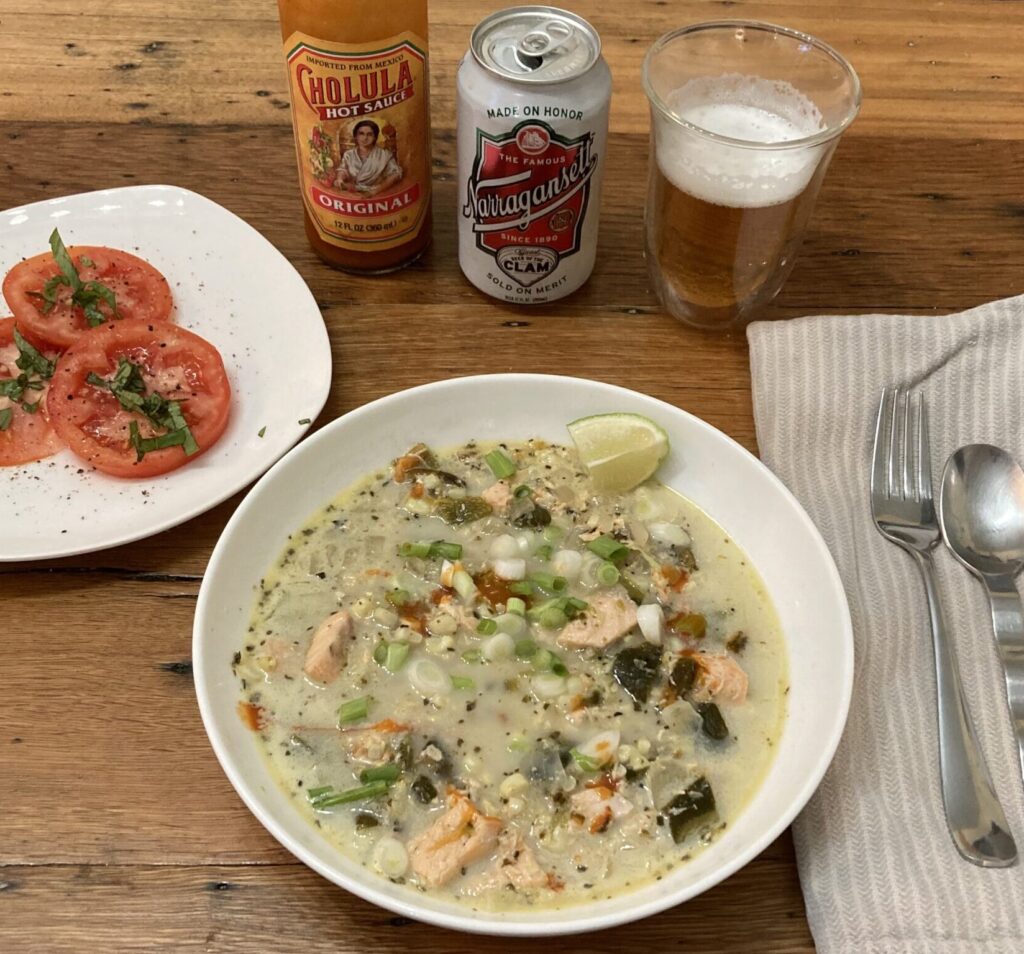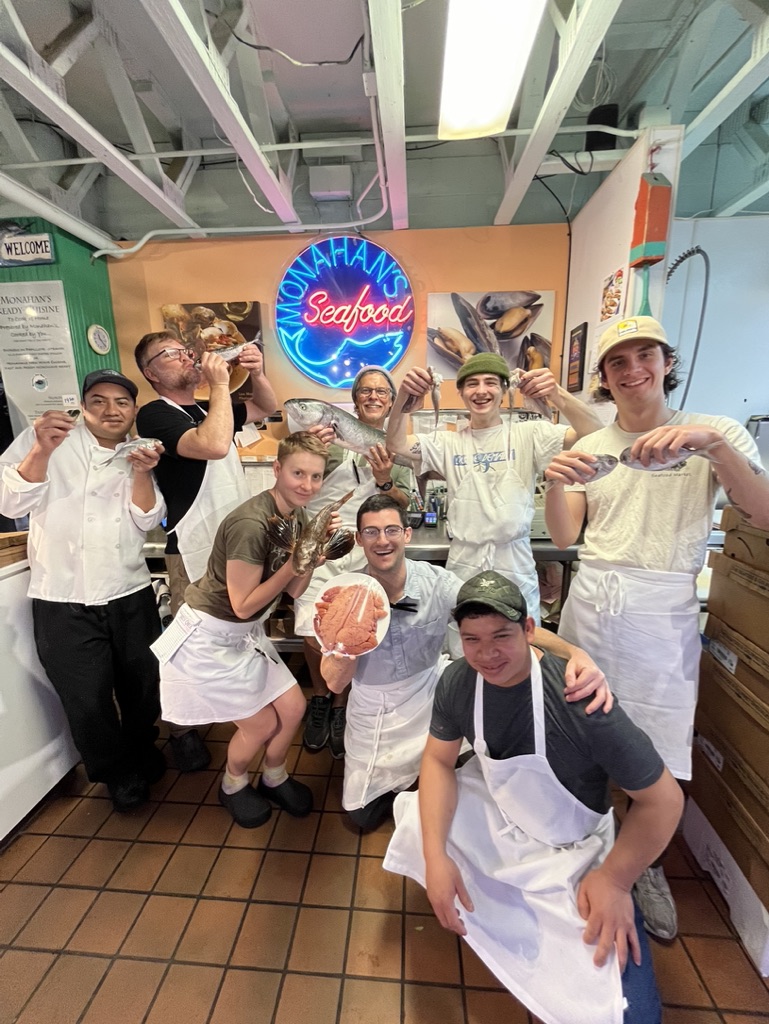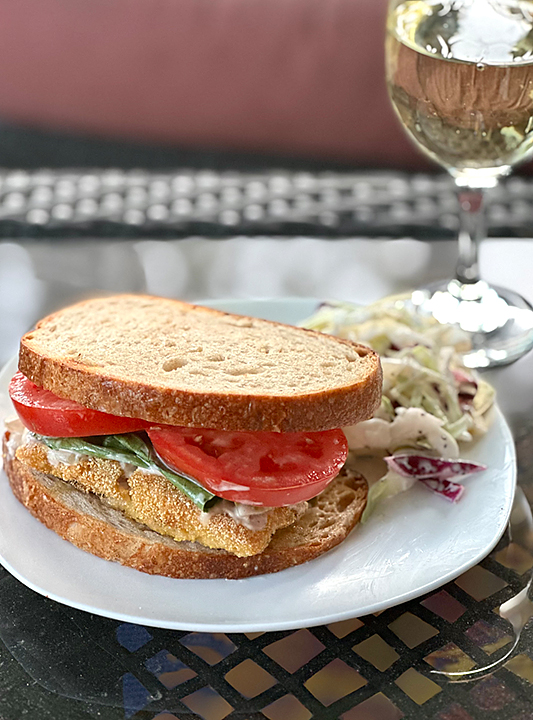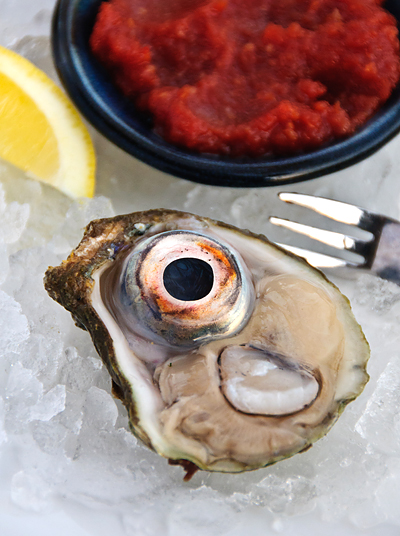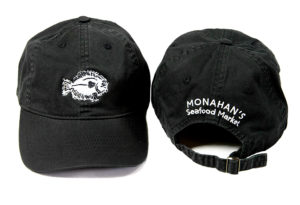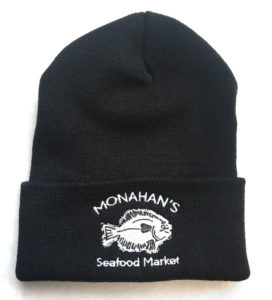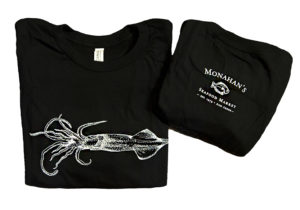Way Out on the Cobia Farm
Wild cobia is a fantastic fish but, because of its solitary nature (making it hard to catch in great numbers) it’s been pretty rare at our market. It has firm dense meat with a delicate sweet flavor due to its diet of crabs, squid and fish. A few weeks ago we were offered some farmed raised cobia and since it’s such a great fish in the wild I thought we’d give it a taste.
Now Monahan’s has always specialized in premium quality wild fish and has always supported the fishermen, the fishing communities and the continuation and sustainability of our wild fisheries but, since over 1/2 of the seafood sold worldwide is now farm raised, we too offer what we select to be the best from the aquaculture world. There are some problems with aquaculture (especially overseas) such as the use of antibiotics, runoff pollution, escaped fish possibly compromising wild stocks, to name a few. Images of fish farming were actually positive 18 years ago. Farming could boost and control production (meaning lower prices than the uncontrollable wild market) and it could also help to take pressure off of the heavily fished wild stocks.
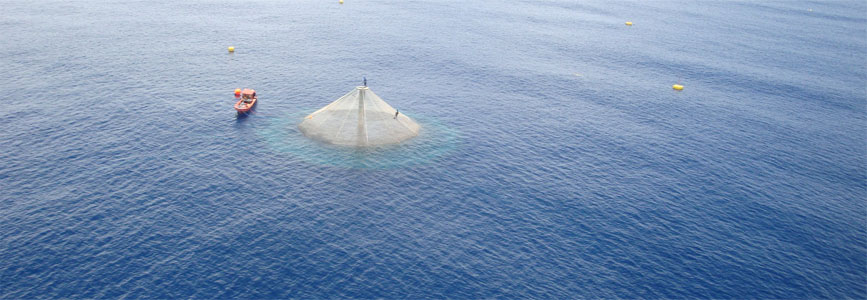
Fish farming is an evolving technology that’s growing and getting better. A few of the farmed raised fish and shellfish that we sell include mussels, Atlantic salmon, tilapia, rainbow trout and Japanese Hamachi (yellowtail). These farms have good information on their operations and traceability of their products. There is one outfit though that seems to really be on the cutting edge of technology and is raising the perfect fish (cobia) under the best conditions for the fish and the environment. That company is called Open Blue Sea Farms and they farm cobia off of Panama in what’s called open ocean aquaculture. I had a very interesting conversation with the company’s founder and president, Brian O’Hanlon. He told me that his fish are raised in crystal clear water in open ocean pens so far off shore that they are beyond the horizon line. All you can see is the tops of the mountains of Panama. He thinks that there’s nobody in the world farming that far off shore.
I later did a little research on Brian’s background and found out that his aquaculture experience goes back a long way. Growing up in New York, at age 17 he talked his parents into letting him experiment with hatching red snapper in his basement (a fish that had never been hatched in captivity before). He discovered that by changing water temperature and playing with the lighting he could fool the fish into thinking it was mating season. That was the beginning of his career (he now uses the temperature and lighting techniques with his cobia).
Most fish farming operations are located in more protected areas nearer to shore where they are protected from high seas and more accessible to base operations and processing.
Raising fish so far off shore alleviates many of the problems of inshore aquaculture. The water is pristine the currents are strong and the water in the pens is constantly replaced. Since cobia are solitary open ocean fish and are attracted to structures such as oil rigs, floating debris and even sea turtles, they are quite at home in these open ocean pens. These fish are said to be disease free, don’t have any problems with mercury, PCB’s or other contaminants and best of all they’re delicious!
I was pleasantly surprised by the texture, flavor and versatility of this fish. As tasty as wild cobia is, the Open Blue cobia has some good things going for it too. For one, since wild cobia is a scarce commodity, having a steady supply is a plus. Another nice feature is the rich marbling that gives this fish a little more versatility in cooking styles than the wild stocks. Wild cobia are delicious but are fairly lean and can overcook easily if the novice cook isn’t careful. The Open Blue cobia have a buttery texture that can be cooked in almost any style. They’re especially good to pan sear, broil, grill or serve as sashimi or ceviche.
We’ll always specialize in wild fish at Monahan’s but we will also support sustainable, responsible, cutting edge aquaculture and Open Blue Sea Farms seems to fit the bill. Cobia is in the house! Try some tonight, or we can sear some up for your lunch!

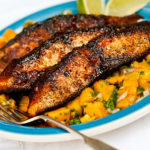 Previous Post
Previous Post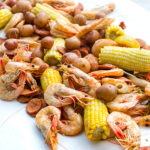 Next Post
Next Post